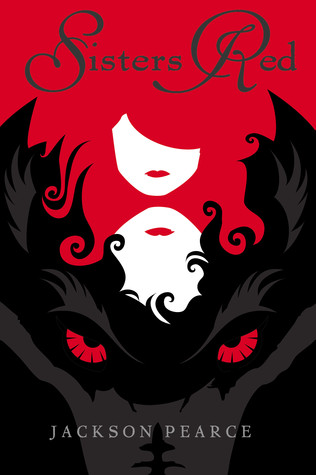 |
| The cover of the copy I read. |
One of the things that I absolutely loved about this book was Scarlett and her sense of responsibility. Being one of the few people to know about the Fenris she sees hunting wolves as her duty to mankind. I admired this a lot because although I know that this is in a fantastical setting, personal responsibly is something that I am a believer in and was thrilled to see portrayed in a young adult novel. Having said that, she does have her flaws and her fear of abandonment leads her to act in a less than noble way towards her sister and best friend. This does, however, show that she is human. It made for a more well-rounded, more relatable character and made me like her even more.
It was also great to see a comment on the predatory nature of men in such a novel as well. I very much felt that the wolves were a metaphor for rapists who prey upon and destroy vulnerable, yet beautiful women in the pursuit of power. The Fenris are always male and their victims always young, attractive women and I feel that even if this was not a deliberate feminist comment being made by the author it does show that there is something within the female psyche that tells them they have something to fear in the dark. I especially like how the wolves' action are never justified, that they are never portrayed as sympathetic characters. We feel pity for the people that they used to be, but once they are changed, Pearce makes the distinction between good and evil very clear. The magic of transformation from human to wolf is never really explored in any way that gives answers, but I got the feeling that wasn't the 'point' of the story and I was somewhat satisfied with that.
The way in which the narrative was told is also something that I liked and loved that I got the perspective of both sisters. Rosie is very different from Scarlett and has a distinctly different voice which I felt Pearce did well. The thing that I admired most in this character was her love for her sister. The internal battle that we get to witness in Rosie between the love for her sister and the need for her to find herself even in a world with Fenris felt, despite the fantasy aspect, to be genuine. Rosie is only 16 and this book reminded me of the challenges of being who you are when you're that age. I was very happy with the compromise that was made at the end of the book.
Now, there were some problems that I had with this book. The first thing and the most off-putting was the dialogue. I found it very uncomfortable to read. It felt as though Pearce was trying too hard to make it sound like something that you would read in a book and not enough like something that someone would really say. I thought that it would get less jarring as I read on, but it still proved to be a problem for me even at the end of the book.
| The new cover |
Despite these issues I did still enjoy this book. I felt as though the fairytale was dealt with very well and I loved the way that it had been modernised. I would also like to comment on the cover change that has occurred recently and say that I really like the direction that they have gone in with them. I know there are 3 other books in this series and I look forward to picking up the next one.
Rating: ★★★
Next in series: Sweetly


